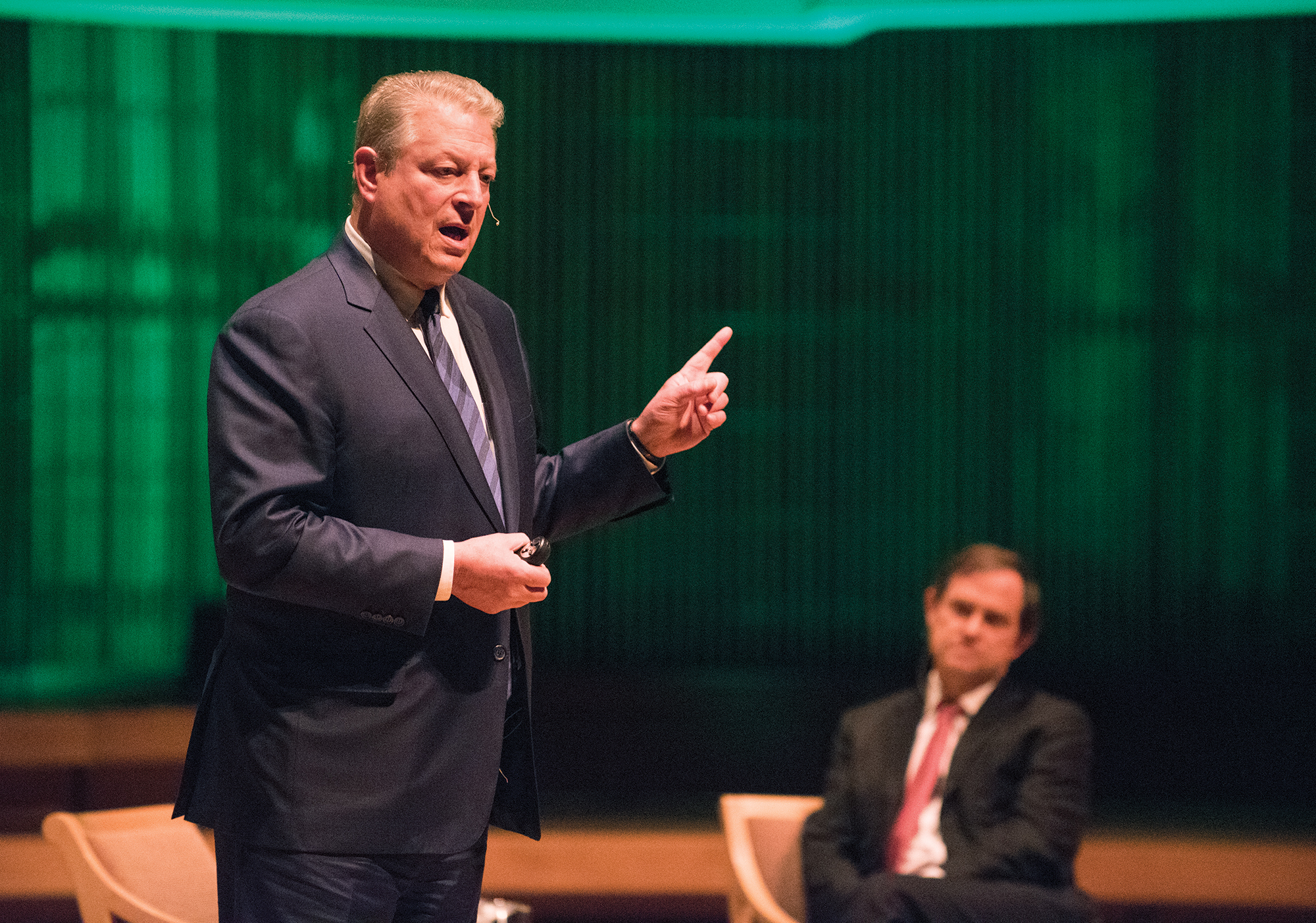While many of his toxic ramblings about minority groups have grabbed headlines, Donald Trump’s most harmful opinions may be those on climate change. He appears to believe that China fabricated the concept of climate change to get a leg up on U.S. manufacturing, and last week, he pledged to eliminate federal spending on everything related to climate science as president. Ezra Solway, my colleague at The Diamondback, has joined the chorus of pundits denouncing Trump’s dangerously regressive — and blatantly false — worldview, and I commend him for doing so.
But with the election coming up Tuesday, it looks increasingly unlikely that Trump will ascend to the presidency. Hillary Clinton’s odds of victory leapt above 80 percent on Sunday, according to British betting group Betfair; while FiveThirtyEight’s projections, though not quite as optimistic, give the Democratic nominee a 64.9 percent chance of securing the presidency as of Nov. 7. Wherever you look, you’ll find a rosy outlook for Clinton — and a cloudy future for the climate. Although Clinton clearly doesn’t echo the climate denialism of her opponent, her brand of moderate response to climate change will still cause a host of problems.
Like many prominent Republicans, I’m not a scientist, so I can’t give detailed information on the ramifications of climate change. Unlike those Republicans, however, I know to trust scientists, who’d explain the dilemma like so: If we don’t prevent global temperatures from rising 2 degrees Celsius, we’ll face catastrophic consequences. Fresh water reserves will start to vanish, crop yields across the world will diminish, scores of plant and animal species will be at risk for extinction, wildfires and hurricanes will become more destructive, dogs and cats will be living together — it’s a scenario that we must avoid at all costs.
How would Clinton keep us below that 2 degree mark? Like her predecessor, President Obama, she plans to stick to the strategy outlined in the Paris Agreement. As her campaign website explains, she’ll push for a 30 percent decrease in greenhouse gas emissions by 2025, with a long-term goal of more than 80 percent reduction by 2050. Along with similar cutbacks from the European Union and a more gradual decline from China, this plan would theoretically avert the crisis.
That theory doesn’t hold water, though. We’ve reached the halfway point — in 2015, several environmental agencies reported that global temperatures had already jumped 1 degree Celsius — and at this rate, we’ll hit the 2 degree mark by 2050. Because of population growth and industry expansion in developing countries, even an 80 percent goal for greenhouse gas reduction just won’t suffice. Recognizing this, many climate scientists have come forward to criticize the Paris Agreement and demand a more aggressive response to the spike in temperatures.
Two factors may prevent Clinton from heeding their advice. First, Clinton has always had a cozy relationship with the private sector, which will likely inhibit her ability to rein them in. As Naomi Klein laid out starkly in The Nation during the Democratic primary, carbon markets, carbon offsets and other unoffensive programs won’t cut it. The fight to halt climate change “won’t all be win-win,” she wrote. “[F]ossil-fuel companies … will have to start losing.” Aside from curtailing subsidies to oil and gas companies, Clinton hasn’t proposed anything that takes a firm stance against the fossil fuel industry or greenhouse gases.
Second, Clinton tends to shift toward the center on controversial issues, eschewing audacious statements that could turn off potential voters. Take the carbon tax: It’s a possible excise fee on carbon production, which would be a good first step toward curbing greenhouse gas emissions. According to emails released by Wikileaks, Robby Mook and John Podesta, Clinton’s campaign manager and chairman, respectively, both cautioned against firm support of such a tax during the primary. Mook feared it would be “lethal in the general,” and Podesta warned the issue didn’t poll well. But elections and polls take a backseat when the future of the planet is at stake — or they should, at least.
Amidst all the insanity that the 2016 election has brought — the lies, the crazy promises, the open and unashamed bigotry, the hacks (both computers and journalistic) — many concrete issues have gone by unnoticed. We shouldn’t let that happen, though, because climate change requires immediate and forceful action. If Clinton cruises to victory over Trump tomorrow, we won’t be out of the woods yet. A president who doesn’t do enough to counteract climate change might be better than one who exacerbates it, but she’ll still cause considerable, perhaps even disastrous, damage.
Ryan Romano is a sophomore journalism major. He can be reached at tripler26@gmail.com.



